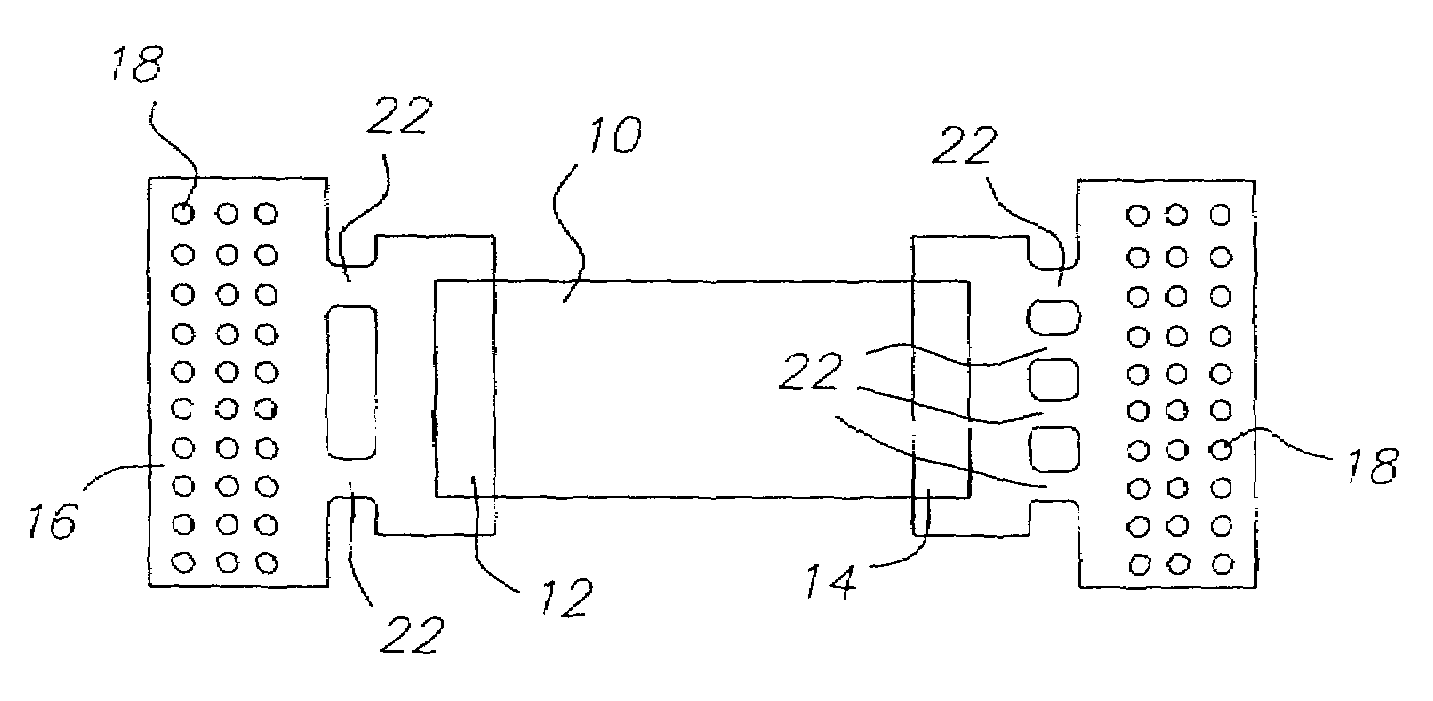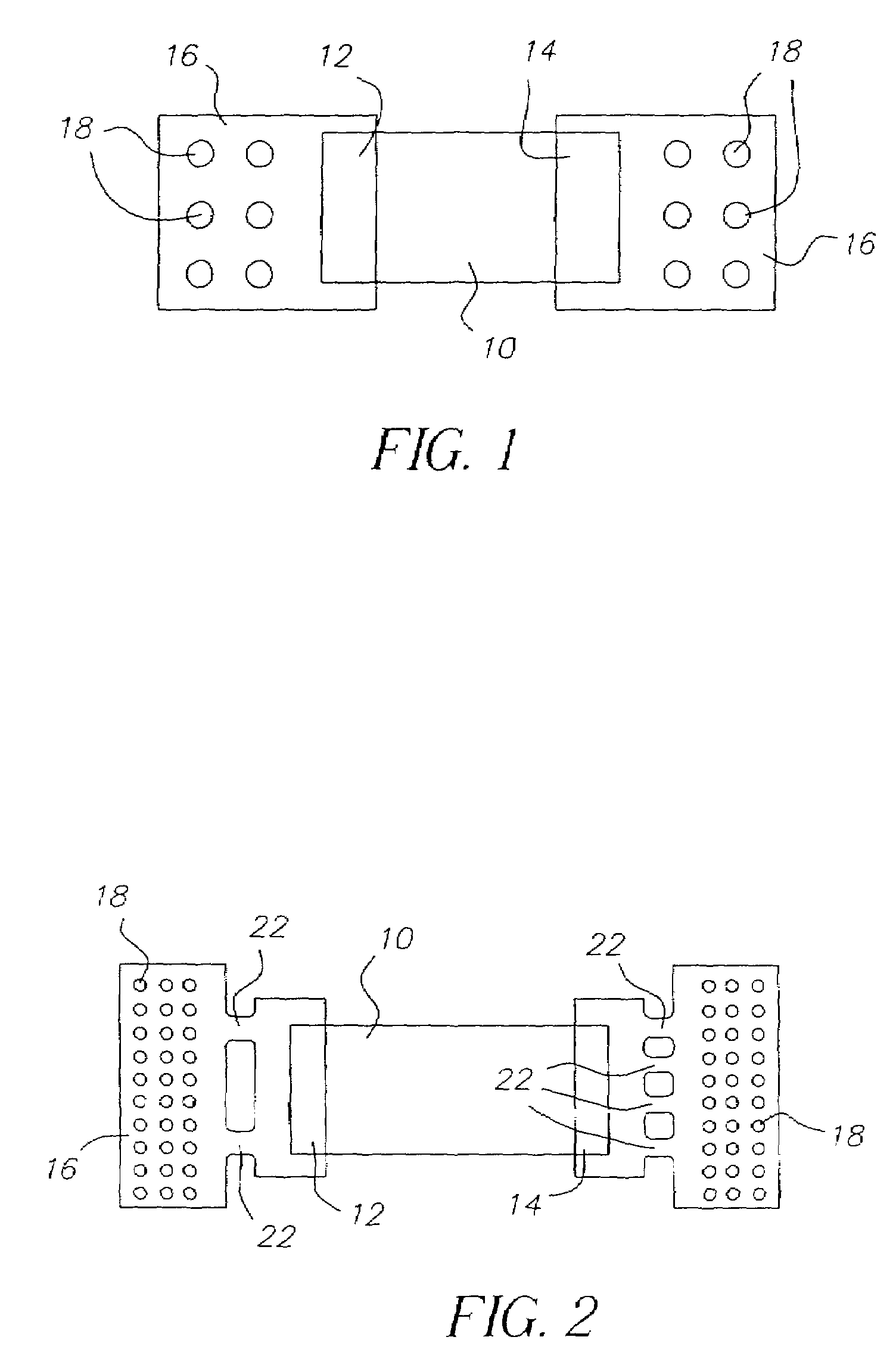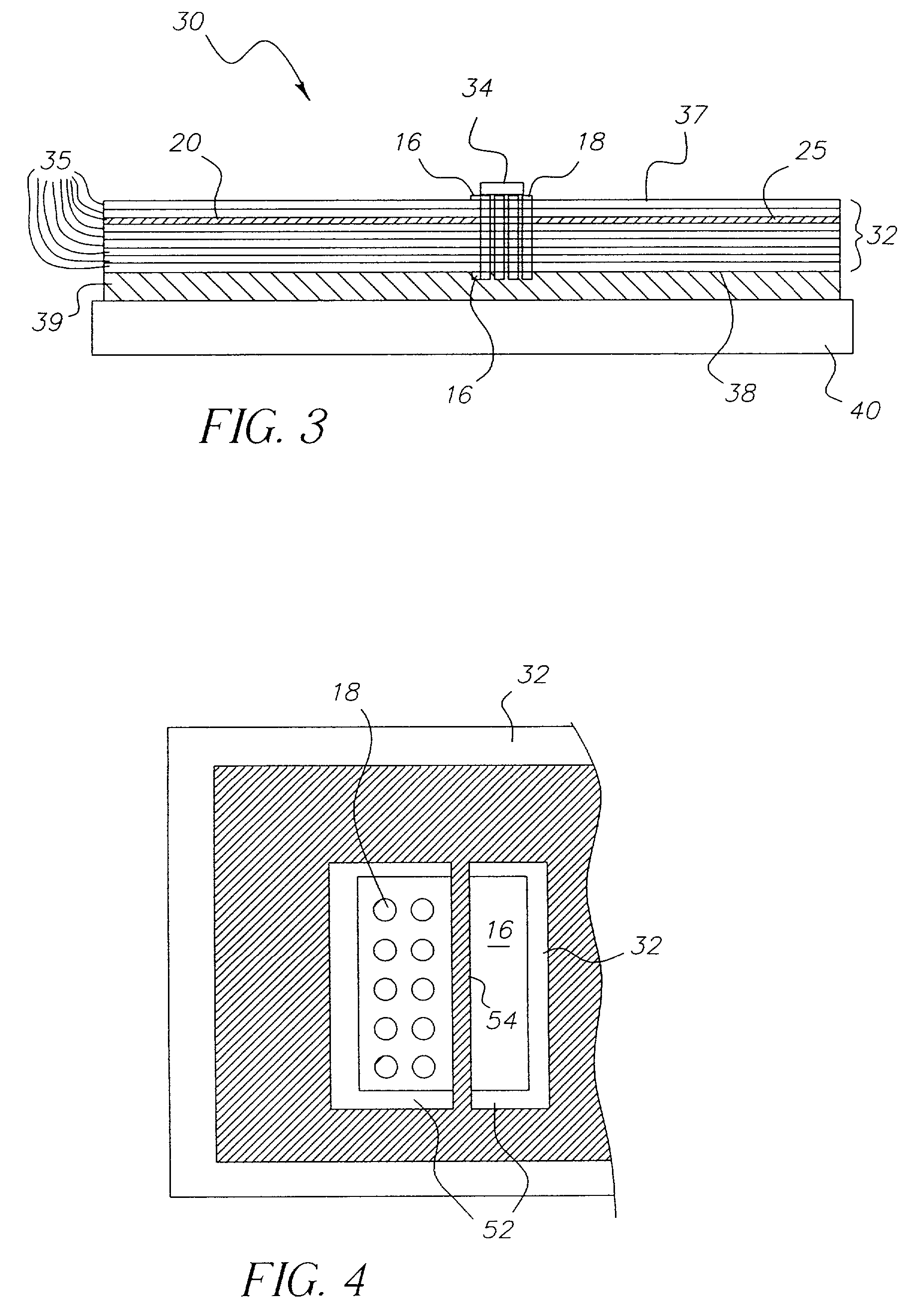Insitu-cooled electrical assemblage
a technology of electrical assemblage and insitu cooling, which is applied in the direction of printed circuit, sustainable manufacturing/processing, final product manufacturing, etc., can solve the problems of reduced reliability of overall components, reduced component life, and increased reliability problems of circuit board solder joints, etc., to increase component useful life, improve the effect of heat transfer efficiency and cost effectiveness
- Summary
- Abstract
- Description
- Claims
- Application Information
AI Technical Summary
Benefits of technology
Problems solved by technology
Method used
Image
Examples
Embodiment Construction
[0016]Turning now to the drawings, and in particular to FIGS. 1 and 2, the electrical component 10 of the invention is illustrated According to FIG. 1, electrical component 10, for instance a resistor or capacitor, has mating portions 12, 14 and a heat-removing element 16 attached to either of mating portions 12, 14. Electrical component 10 is preferably made of a ceramic or ceramic-like material for suitability of die usage or affixing other electrical components (multi-chip module). Although soldering is the preferred method of attaching heat-removing element 16 to either of mating portions 12, 14, skilled artisans will appreciate that other methods may be used including using electrically conductive adhesives. Mating portions 12, 14 are typically gold or palladium tipped for best thermal conductivity and solderability. Skilled artisans will appreciate that, alternatively, the mating portions 12, 14 may comprise other thermally conductive materials such as tin-lead.
[0017]According...
PUM
 Login to View More
Login to View More Abstract
Description
Claims
Application Information
 Login to View More
Login to View More - R&D
- Intellectual Property
- Life Sciences
- Materials
- Tech Scout
- Unparalleled Data Quality
- Higher Quality Content
- 60% Fewer Hallucinations
Browse by: Latest US Patents, China's latest patents, Technical Efficacy Thesaurus, Application Domain, Technology Topic, Popular Technical Reports.
© 2025 PatSnap. All rights reserved.Legal|Privacy policy|Modern Slavery Act Transparency Statement|Sitemap|About US| Contact US: help@patsnap.com



